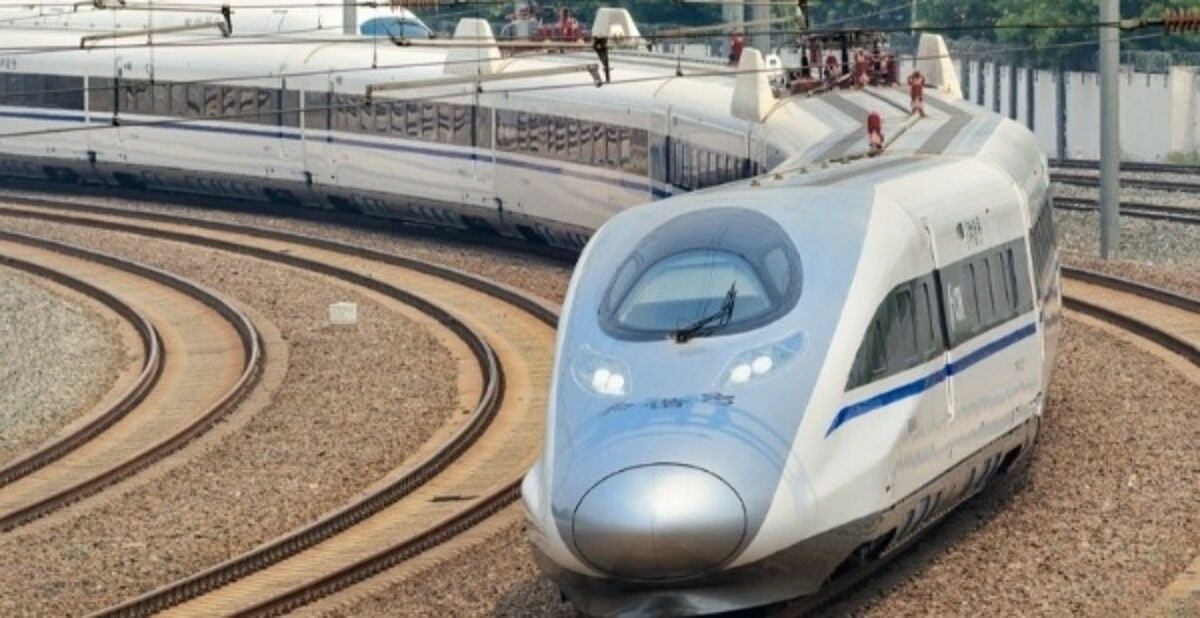EEC high-speed rail contract revisions to Cabinet in two weeks

Proposed revisions to the contract for the high-speed rail project connecting three major airports are expected to be submitted to the Cabinet within two weeks, according to Finance Minister Pichai Chunhavajira.
Pichai, who also chairs the Eastern Economic Corridor (EEC) Policy Committee, announced that the committee had approved changes to five critical points in the contract. The committee is currently awaiting feedback from relevant agencies, a process expected to take around two weeks, before presenting the matter to the Cabinet.
The high-speed rail system, a cornerstone project of the EEC, aims to connect Don Mueang, Suvarnabhumi, and U-Tapao airports. The original contract was signed in 2019 between the State Railway of Thailand (SRT) and Asia Era One, a subsidiary of Charoen Pokphand (CP) Group. This agreement included a concession to operate the Airport Rail Link as part of the joint investment plan.
The EEC Policy Committee approved revisions focusing on five key aspects of the contract on Friday, October 11. One major point of revision involves the payment method for public investment costs. Under the original agreement, the government was to pay a total of 149.65 billion baht in instalments when the private sector commenced operations of the high-speed train.
The proposed changes now stipulate that the government will pay a maximum of 120 billion baht in instalments, contingent upon the progress of work verified by the SRT. The private sector is also required to provide additional guarantees beyond the original contract, amounting to 160 billion baht, to ensure the high-speed train is constructed and operational within five years.
Ownership of the constructed assets will be gradually transferred to the SRT according to the instalment payment schedule.
“The committee approved proposed revisions to five key points in the contract.”
Pichai highlighted the committee’s focus on ensuring the project’s financial and operational feasibility.
The high-speed rail project is seen as a vital infrastructure development under the EEC initiative, which aims to bolster economic growth in the eastern provinces of Thailand. Once completed, the rail system is expected to significantly enhance connectivity and reduce travel times between the three airports, fostering greater economic activity and tourism, reported Bangkok Post.
What Other Media Are Saying
- The Journalist Club reports on the Eastern Economic Corridor Policy Committee’s approval of five principles to amend the high-speed rail contract linking three Thai airports, ensuring balanced public and private sector benefits. (read more)
Frequently Asked Questions
Here are some common questions asked about this news
Why are the contract revisions for the high-speed rail project seen as essential for its success?
The revisions ensure financial sustainability and risk management, keeping the project on track and within budget.
How might the high-speed rail system transform economic activity in Thailand’s eastern provinces?
By enhancing connectivity and reducing travel times, it will foster greater economic activity and tourism.
What if the private sector fails to meet the additional guarantees required by the revised contract?
The project’s completion and operational timeline could be jeopardized, impacting overall economic goals.
What role does public-private partnership play in the success of the high-speed rail project?
It underscores the importance of collaboration in achieving national development goals through shared investment and risk.
How might the revised payment method impact the financial feasibility of the high-speed rail project?
It aligns payments with verified progress, ensuring better financial oversight and accountability.
Latest Thailand News
Follow The Thaiger on Google News:


























